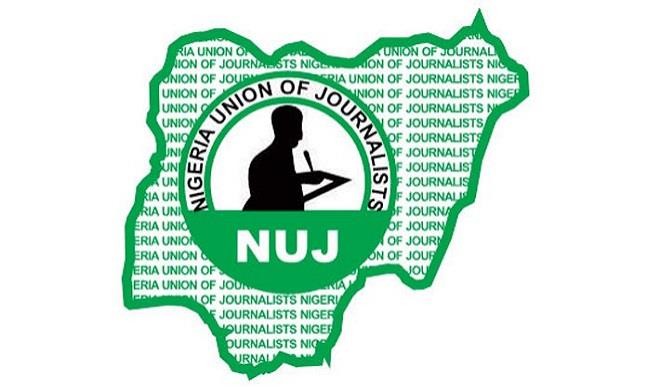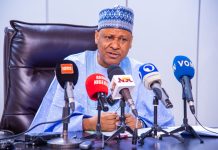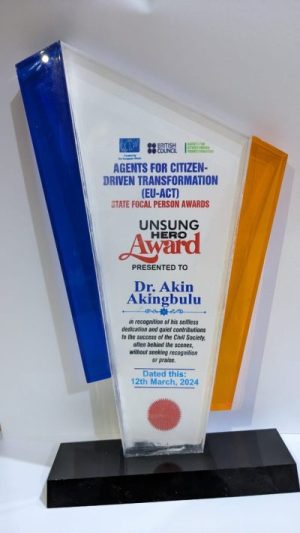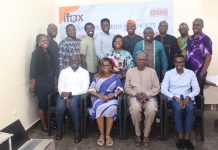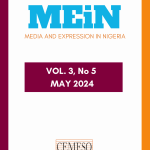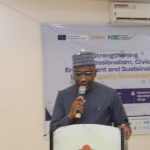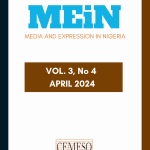Vice President, Yemi Osinbajo (SAN); rights activist, Femi Falana (SAN), publisher of Premium Times newspaper, Dapo Oloruyomi and former Commissioner of Justice and Attorney General, Borno State, Muhammed Monguno have asked journalists to be committed to ethical conduct and professionalism.
Osinbajo, Falana Olorunyomi and Monguno argued, by upholding ethical conduct and professionalism, journalists would better serve the nation’s democracy by exposing societal ills and holding government and its agencies accountable.
They noted that, where journalists abide by the rules of professional practice, they will also be able to avoid conflicting with the law.
Osinbajo, Falana, Olorunyomi and Monguno spoke in Abuja on the opening day of. a “two-day workshop on legal and ethical issues in investigative journalism in Nigeria,” put together by the Daily Trust Foundation, Centre for Media Law and Development and MacArthur Foundation.
Read Also: Osinbajo urges journalists to expose corruption
The Vice President, who was represented by his media aide, Laolu Akande, noted the challenges recent development in media technologies and the social media now pose to media practice.
He said
“We are living in interesting times; and I would say the free press has arrived at its best possible time and also possibly its worst time.
“It is the best time for the free press because the advent of digital technology and the internet continually shape the ultimate definition of freedom of expression.
“Everyone of us here can have access to and even own a medium. Any medium of communication is available to us now.
“This is moreso in the age of social media, where for pecuniary, political or whatever interests, fake news spread like wild fire, and facts are distorted by a few individuals leveraging on various media platforms to push outright misrepresentation into the public space.”
Osinbajo stressed the need for media practitioners to be more thorough and ensure adequate verification of the information they push out for public consumption.
He noted that “recent events, including the past general elections – where fake news and unverified information were shared by many on different media platforms, and on social media especially – have also put a spotlight on the importance of investigative journalism and why our country needs this aspect of the profession more than ever.
“This is because as gatekeepers, the press can also help in making government accountable by publishing information on issues that overwhelmingly serves the greater good of public interest.
Osinbajo, who assured of the willingness of the Federal Government to provide a conducive environment for the media to operate, advised that media stakeholders ensure adequate internal mechanism for regulation within the industry.
He noted that with self-regulation, adoption of ethical codes and understanding the legal issues guiding the journalism profession in Nigeria, media practitioners can help preserve media credibility, check fake news and also enlarge its investigative journalism space, which is becoming a dying art.
“Journalists should strive to abide by the code of ethics in the practice of their profession, because without adhering to a code of ethics, investigative journalism, or any profession at all, would not thrive as much as it should.
“Of course, we should always be conscious of over-regulation or infractions of the freedom of the press or freedom of information. It is important that self-regulation is robust enough to prevent a situation where government or formal establishments pass laws and regulations of the trade.
“I think once self-regulation is robust enough, it is easier to then make the case that we should not have government regulation.
“As a government, we will continue to play our part in providing conducive environment for the practice of good journalism and ensuring the safety of journalists wherever they find themselves in the line of duty.
“While freedom of speech and expression cannot be censored, it behooves on the investigative journalist to abide by the journalism code of ethics in carrying out his/her responsibilities.
“This include observing strictly to the time-tested journalistic values of honesty, independence, accuracy, fairness, objectivity, credibility, balance and public accountability.
“On the legal standpoint, investigative journalists should discharge their duties without infringing on the fundamental rights of an individual or having unauthorized access to information that may put the journalist at the risk of criminal prosecution or going against the laws of the land.
“In all, the greater good should far outweigh any other reason for embarking on investigative reportage. Adhering to the ethics of the profession would help in avoiding the pitfalls of legal challenges,” Osinbajo said.
Falana, who gave many instances where he had assisted journalists and media organisations avoid being sanctioned, encouraged media practitioners to remain committed to their trade.
He said while the nation’s democracy desires a virile media, the practitioners must be conscious of relevant legal provisions to enable them effectively discharge their professional responsibilities without conflicting with the law.
Falana, who identified existing laws that are not media friendly, admonished media houses and journalists to avoid practices that could expose them to liability.
He condemned the practice where criminal suspects are paraded before television cameras, a practice he said has been criminalised under the Anti Torture Act, 2017.
Olorunyomi, who identified the many changes in the nation’s media landscape and journalism practice, stressed the importance of investigative journalism.
He urged journalists to always be conscious of the need to uphold professional ethics if they want to be respected and taken seriously.
Monguno stressed the relevance of investigative journalism, which he said must be practised with strict adherence to the ethics of the profession.
He advocated continuous training for journalists, particularly laws relating to the regulation of the industry.
Monguno argued that there was the need for the inclusion of representatives of the media industry on the Cybercrime Advisory Council.


